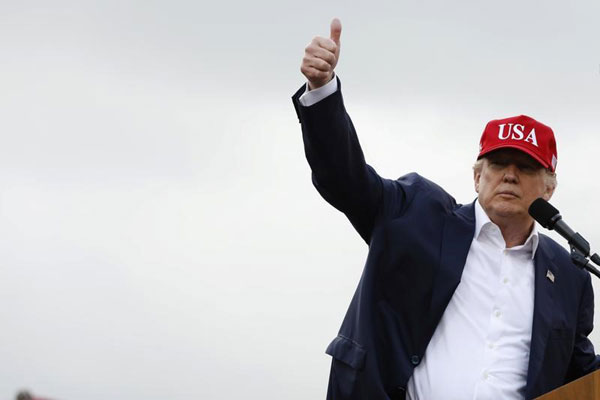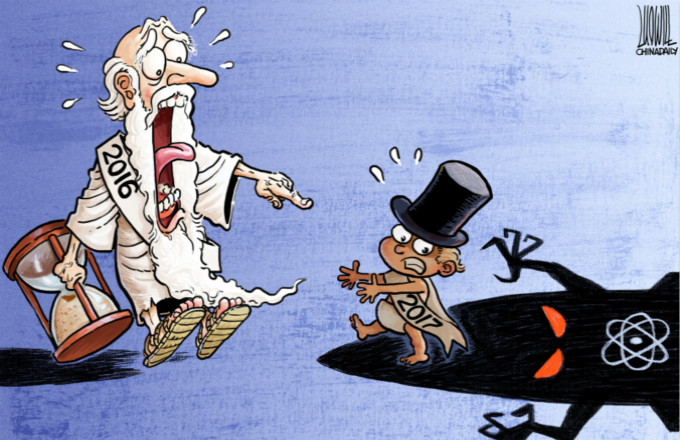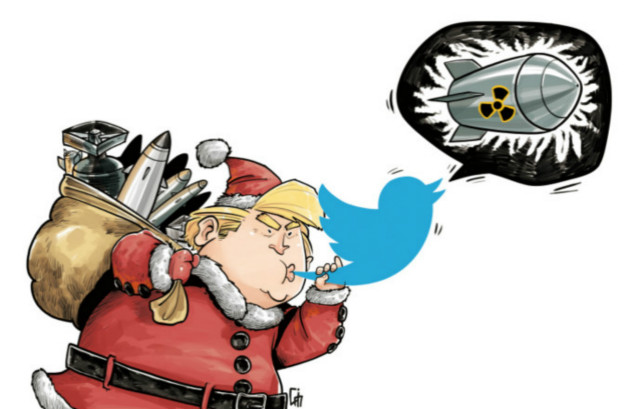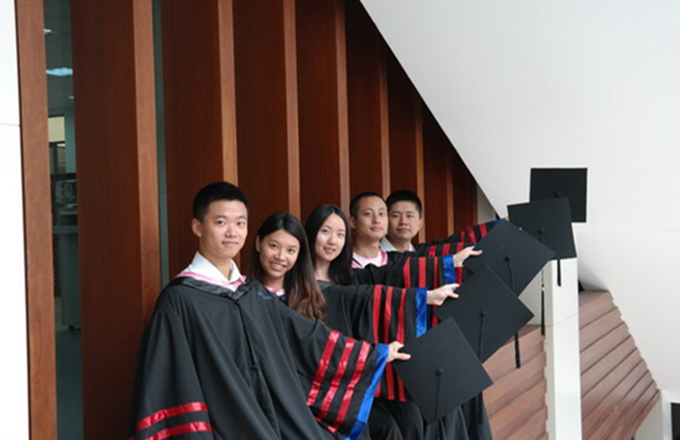The 'black swan' marvel in changing times
 |
|
US President-elect Donald Trump gestures as he speaks during a USA Thank You Tour event in Mobile, Alabama, US, December 17, 2016. [Photo/Agencies] |
Ever since Donald Trump won the United States' presidential election, analysts across the world have written tons of articles with some expressing "cautious optimism" and others "guarded pessimism". And given the appearance of another "black swan"-the election of Rodrigo Duterte as the Philippines' president, I can guess where the international situation and the United States' foreign policy are headed toward.
The international situation in 2016 was characterized by chaos, change and a desire for law and order, with change being the key link in the interrelated features. The process of quantitative change seems to have reached a critical point and is moving toward the stage of qualitative change, as is suggested by the "Trump phenomenon" in America and the "Duterte phenomenon" in Asia.
The "Trump phenomenon" indicates the birth of a new trend of thought-"seeking change" and "seeking good governance"-in developed countries that are currently caught up in various kinds of turmoil.
Many developing countries that have become "richer" are also looking forward to change and good governance. The "Duterte phenomenon" reflects, in a certain sense, the wish of developing countries for equal treatment by global powers, instead of being controlled by them, much less being forced onto the US' war chariot.
It would be in the interest of the whole world if both sides' expectations of change and good governance could meet and reconcile with each other. The most imminent problem now is how different and new the "Trump administration" will be, how he will fulfill his promises to "put America first" and make "America great again", and whether the US will continue to police the world and interfere in other countries' internal affairs or whether it will change its foreign policy to suit the needs of the times.
We have to wait to see how Trump treats his predecessor Barack Obama's "pivot" to the Asia-Pacific strategy, whether he improves US relations with Russia, how he responds to China's friendly gestures, whether he readjusts relations with US allies and whether he will take the fight against terrorism seriously and respect the United Nations' central role.
The sudden collapse of the Soviet Union in 1991 made the US the sole superpower. Elated by the development, American political scientist Francis Fukuyama claimed in his book, The End of History and the Last Man, that the US and its values will prevail in the world. Some other analysts predicted China would be the next to fall in the domino effect.
However, facts have proven the Americans misjudged the situation; they developed a false understating of China and failed to foresee the massive rise of developing countries; and they passed an incorrect judgment on themselves. They endeavored to squeeze Russia's strategic space and tried to surround China with a chain of hostile forces as they had done against the Soviet Union. Former US president George W. Bush even waged a series of wars in defiance of the UN, which reduced the world's sole superpower to embarrassment.
Being a serious scholar, Fukuyama realized a few years ago that his optimism had been unfounded. Recently, he wrote that the victory of Trump marked "the end of a time", or the end of US hegemony. This change in Fukuyama's thinking reflects the current trend of "seeking change" and "looking forward to good governance". And this time his conclusion is not based on a superficial understanding of things.
Repudiating the critics of Trump, Fukuyama said he is an isolationist in his innermost being rather than someone who has an intrinsic craving for the power to wield the club of war in the world. Trump has his own thoughts and sticks to it, Fukuyama said. Whether Fukuyama is right this time remains to be tested by facts.
One cannot rule out the possibility that Trump, who is usually bent on having his own way, bucks the trend of the times and globalization. If so, people across the world will suffer tremendously, but at the same time the US' decline will accelerate. As an ancient proverb goes, those whom the gods wish to destroy, they first make mad.
The author is the executive director at China Foundation for International Studies.
Courtesy: chinausfocus.com



















